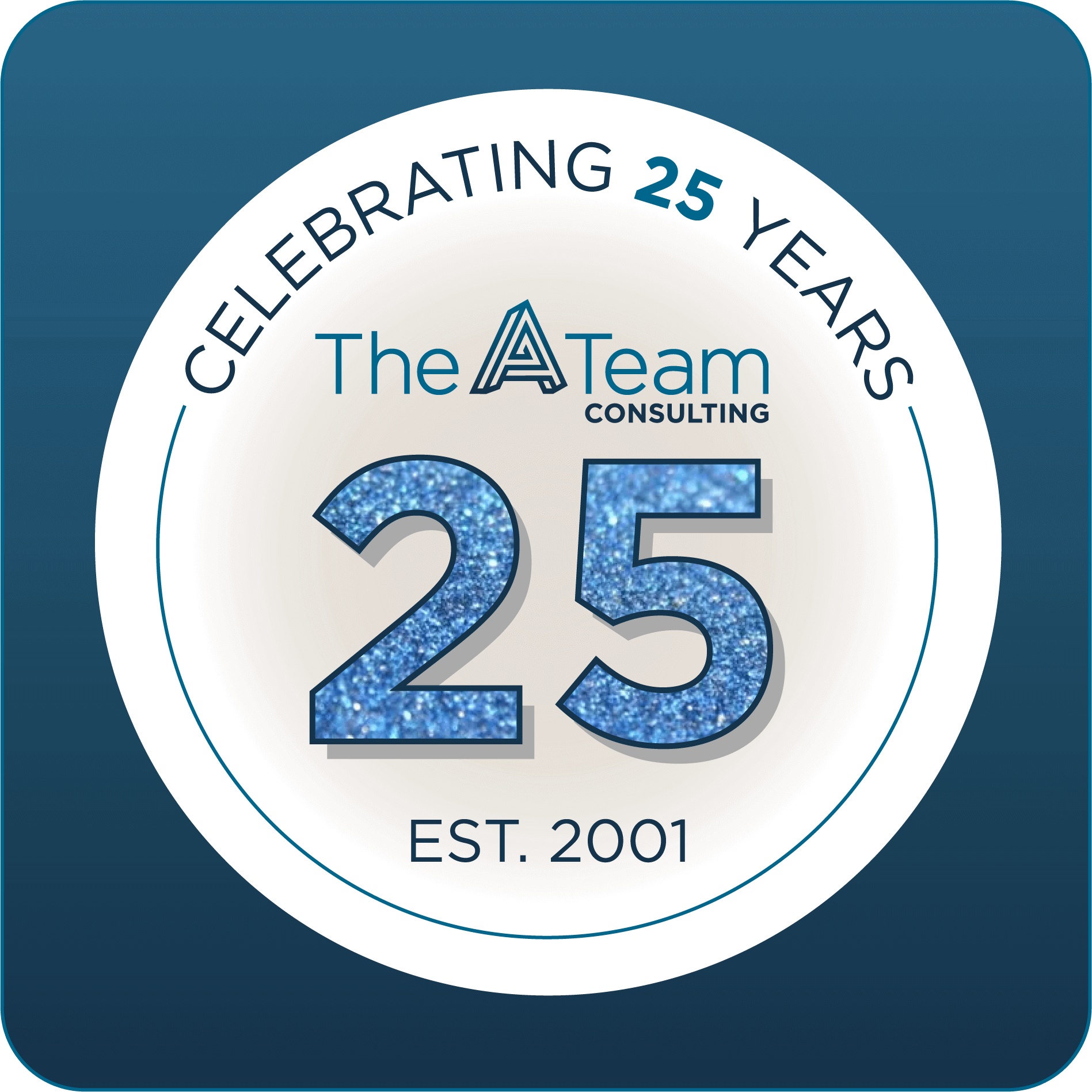Finance and accounting have changed a lot over the past few years. With technology constantly evolving, an increasing number of companies are turning to automation to streamline their accounting tasks and remain competitive. What used to be manageable with spreadsheets and manual data entry is now too slow and too risky for many businesses.
At the same time, financial systems are becoming more complex. You may be dealing with multiple entities, increasing transaction volumes, or new compliance regulations. These challenges can stretch internal teams to the limit. That’s why many companies bring in outside help, and that’s where accounting automation consulting comes in.
If you’re updating your software, rethinking your accounting processes, or just trying to keep up with growth and success, accounting automation consultants can help you make sense of it all. But how do you know when it’s time to get help?

What Is Accounting Automation Consulting?
Accounting automation consulting helps businesses identify the right tools and strategies to streamline their accounting processes more efficiently. These professionals take a close look at how your accounting currently operates and then help you plan and implement automation solutions tailored to your needs. Here’s what they usually focus on:
- Looking at your current accounting processes to spot gaps or inefficiencies
- Identifying where manual work can be automated
- Recommending tools that make sense for your business
- Helping you set up and connect new accounting software
- Training your team so they’re comfortable with the new setup
- Keeping things running smoothly after implementation
In short, accounting automation consultants help companies maximize the benefits of their accounting systems without introducing unnecessary complexity.
Why Businesses Turn to Accounting Automation Consultants
Many businesses turn to automation because they’re stuck dealing with repetitive tasks, such as manual data entry, which consumes time and often leads to mistakes. Delays in month-end reporting, frequent errors, and difficulty keeping up with compliance requirements are all signs that manual processes are hindering the team’s progress.
When information is scattered across multiple systems, it becomes more difficult to make accurate and timely decisions.
As companies grow, accounting becomes more complicated. You may be managing revenue from multiple sources, coordinating across departments, or handling taxes in various regions. What once worked for a small team may now slow things down. Automation can help your processes scale with your business.
When Should You Consider Accounting Automation Consulting?
If you’re not sure whether it’s time to bring in help, here are some signs to look out for:
- Your Accounting Team Is Overwhelmed: If your team spends most of its time on repetitive tasks, such as entering invoices or reconciling accounts, it’s a sign that your processes may not be keeping up. This often leaves little time for higher-value tasks, such as forecasting or analysis.
- Financial Reporting Is Always Delayed: Consistently delayed financial reports can make it more difficult for leadership to make informed, timely decisions. These delays often stem from manual processes or disconnected systems that slow down the month-end close.
- You’re Outgrowing Your Current Software: As your business grows, your needs may outpace what your existing accounting tools can handle. If you’re relying on workarounds or spreadsheets to fill gaps, it’s likely time to explore more flexible options.
- You’ve Recently Expanded or Merged: Expanding into new markets or merging with another company often means juggling multiple systems and workflows. This can create confusion, duplication, and inefficiencies if not addressed.
- Audits and Compliance Have Become Stressful: If your team dreads audit season, it may be because information is difficult to find and documents are across multiple systems. Gathering documentation manually is time-consuming and increases the risk of overlooking important details.
- Industry-Specific Triggers: Industries such as eCommerce or SaaS often require real-time visibility into key metrics, including revenue, inventory, and customer behavior. Relying on manual updates can lead to outdated data and slower decision-making.
How Accounting Automation Consultants Add Value
Once you’ve recognized that it’s time for help, the next step is understanding what accounting automation consultants actually do and how they contribute to your business. Here’s how:
Process Assessment and Workflow Mapping
Before jumping into tools or software, consultants begin by taking a close look at how things are currently working. They sit down with your team to understand everyday processes like how invoices are handled, how data is entered, and how information flows between departments.
Mapping out these workflows can highlight areas that are slow, repetitive, or prone to error. This step helps build a clear foundation so any changes are based on real needs, not guesses.
Tool Selection and Implementation
With numerous accounting tools available, it can be challenging to determine which one is the best accounting automation software suited for your business. Consultants narrow down the options by matching tools to your goals, team size, industry, and budget.
Whether you’re considering ERP platforms, tools to automate recurring tasks, or AI-powered software that reads and sorts invoices, they’ll guide you through the pros and cons. Once the tools are chosen, consultants handle setup, configuration, and testing to make sure everything integrates smoothly into your workflow.
Integration With Existing Systems
An automated accounting system must connect seamlessly with other platforms, such as:
- CRM (e.g., Salesforce)
- Payroll providers (e.g., Gusto, ADP)
- Inventory management systems
- Expense tracking tools
Consultants help bridge the gaps between these systems by building integrations that allow data to move automatically, rather than being manually copied or re-entered. This not only saves time and money but also helps maintain consistent information across departments.
Training and Change Management
New software often means new ways of working, and that can be challenging. Consultants don’t just set up the tools—they also work closely with your team to establish a seamless transition.
This might include hands-on training, workshops, or creating guides that explain how to use the system on a day-to-day basis. They also help managers lead the change in a way that keeps the team involved and reduces resistance.
Ongoing Support and Performance Monitoring
The work doesn’t end once the system goes live. Even with good planning, there will be questions, tweaks, and adjustments as your team starts using the new setup. Many consultants remain involved after implementation to monitor progress, resolve any issues that arise, and recommend additional improvements. This kind of ongoing support helps keep your automation efforts on track and responsive to your evolving business needs.

What Does the Consulting Process Look Like?
Here’s a typical consulting engagement broken into stages:
- Discovery and Audit: The process begins with understanding your current setup. Consultants meet with your team to know how day-to-day tasks are handled, what systems you’re using, and where things tend to slow down.
- Strategic Planning: Next, the focus shifts to planning. This involves setting clear goals for what you want automation to achieve—whether it’s faster reporting, fewer manual tasks, or cleaner data.
- Tool Evaluation: With a plan in place, it’s time to look at which tools will help you reach your goals. Consultants research and shortlist software options that match your business needs and budget.
- Full-Scale Implementation: This is where the real setup begins. Consultants install and configure the chosen software, migrate your existing data, and create workflows tailored to your business’s operations.
- Training and Knowledge Transfer: Once the system is live, your team needs to be trained on how to use it effectively. Consultants provide training sessions and resources, such as guides or walkthroughs, to help everyone become comfortable with the new tools.
- Post-Implementation Review and Optimization: After the initial rollout, consultants check in to see how things are working. They review system performance, gather feedback, and make any necessary adjustments.
Why DIY Automation Often Falls Short
Some businesses attempt to handle automation in-house (or DIY accounting), which can be effective for meeting basic needs. However, without the right planning and perspective, it’s easy to encounter problems.
Common issues include selecting tools that don’t align with your team’s workflow, automating flawed processes that still require reevaluation, or ending up with disconnected systems that fail to share data properly. In some cases, companies only roll out part of a system and stop there, leading to more confusion than clarity.
Working with accounting automation consultants helps avoid these pitfalls by bringing structure to the process. They examine your entire workflow, recommend tools that align with your goals, and guide implementation from start to finish. This kind of outside support can make the difference between a system that slows things down and one that actually supports your team’s day-to-day work.
How to Choose the Right Accounting Automation Consultant
Once you’ve decided to bring in outside help, the next step is finding the right consulting firm. Not all accounting automation consultants take the same approach, so it’s important to know what to look for.
4 Key Traits to Look For
- Industry Experience: Familiarity with your sector brings insight into common challenges and regulatory considerations.
- Technology Certifications: Look for consultants trained in major platforms, like Sage Intacct or QuickBooks Online Advanced.
- Track Record of Successful Projects: Ask for case studies or references from similar clients.
- Communication and Training Skills: The ability to clearly explain processes and systems is essential for successful change management.
Questions to Ask
- What industries have you worked with before?
- What accounting systems do you specialize in?
- What is your process for evaluating and recommending software?
- How do you approach training and change management?
Red Flags to Avoid
- Vague proposals without timelines or deliverables
- Lack of references or documented past work
- Focus only on software rather than process improvement
How to Prepare for a Consulting Engagement
Before bringing in a consultant, it helps to get organized and aligned internally. Gather key documents, such as process maps, access details, and policies, to establish a clear picture of your current setup.
Make sure leadership is on board, set clear goals for what you want to improve, and have a realistic plan for time and budget. This groundwork can make the entire process smoother and more productive.
Feeling the Strain of Manual Processes? It’s Time for AccountingIQ
If your accounting department spends more time maintaining spreadsheets than analyzing results, it’s time to ask: Do we need to rethink our processes and adopt automation?
The A Team’s AccountingIQ software solutions practice provides accounting automation consulting services that enable businesses to transition from manual processes to intelligent, scalable financial systems.
If you’re starting from scratch or enhancing an existing system, we can work closely with your team to assess, plan, and execute automation that aligns with your operational needs.


